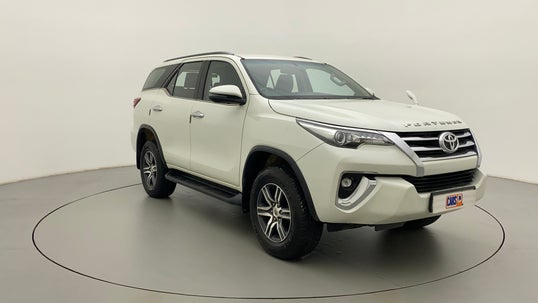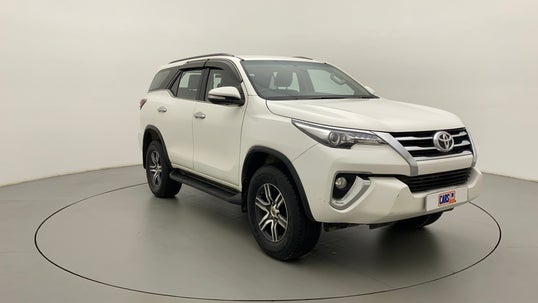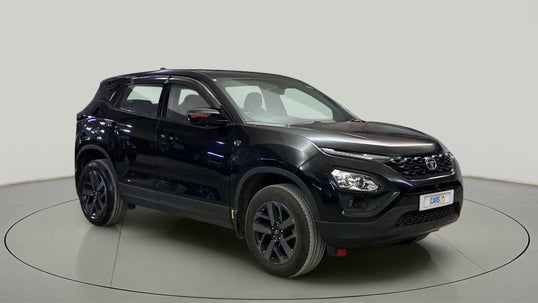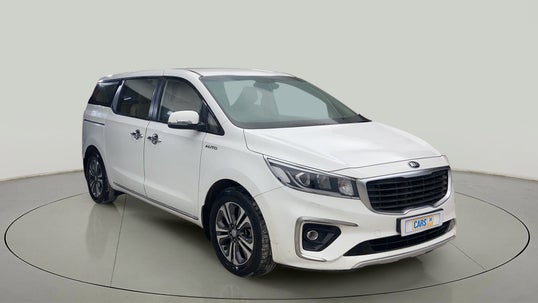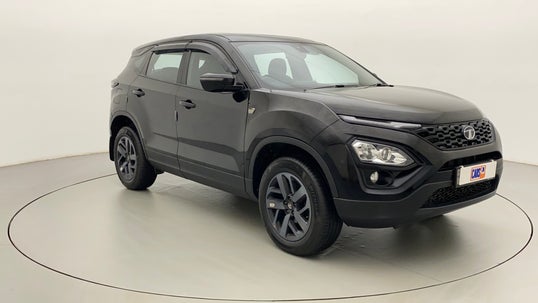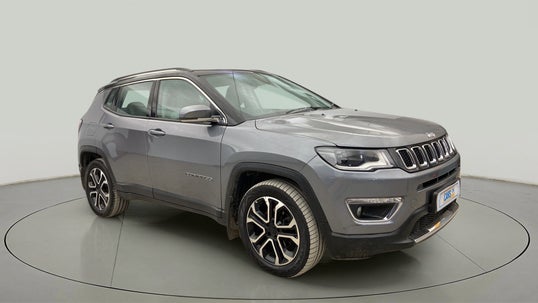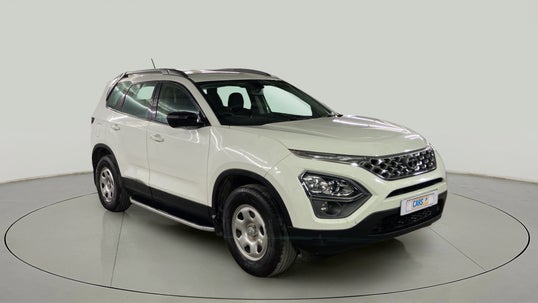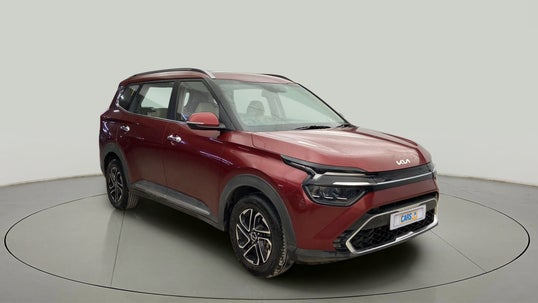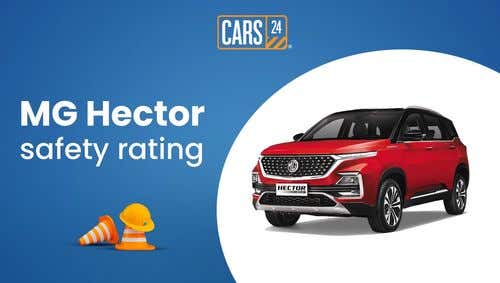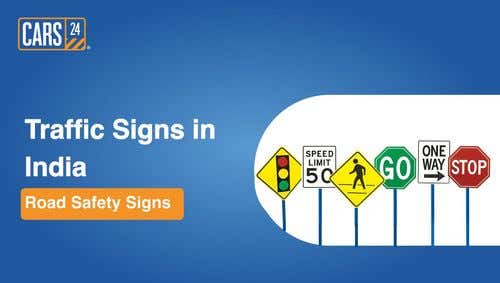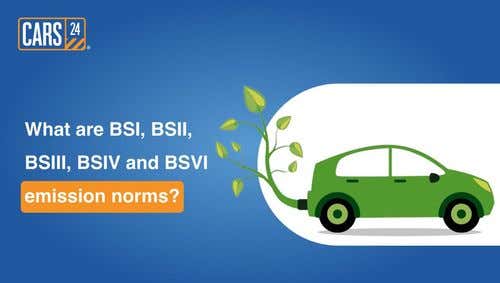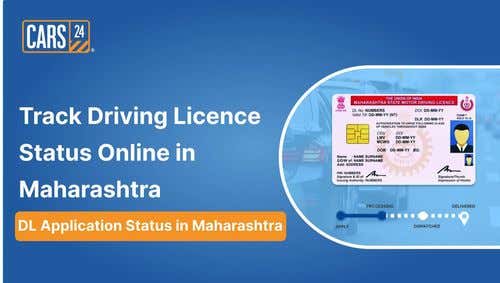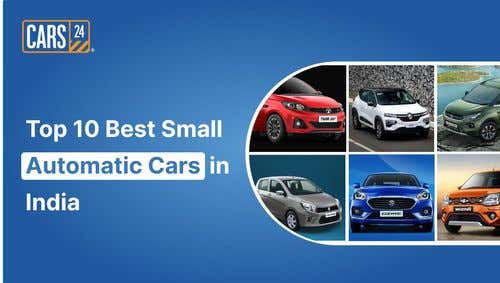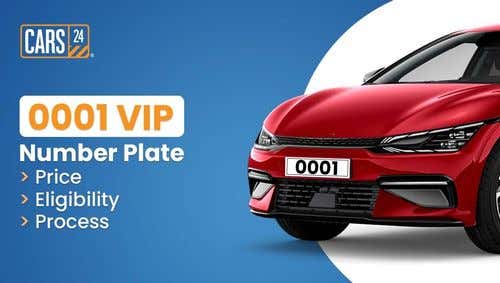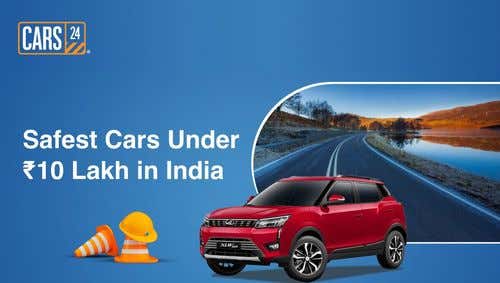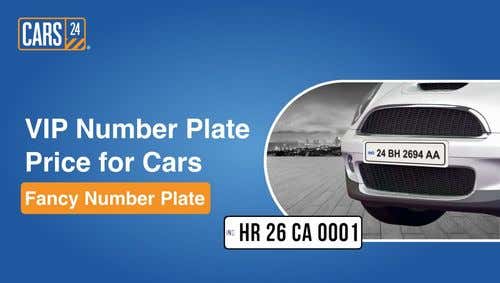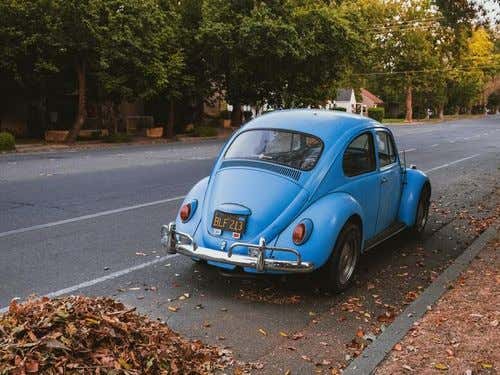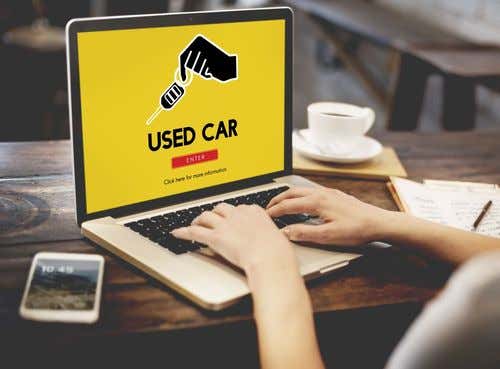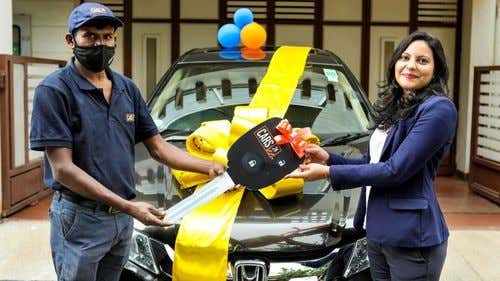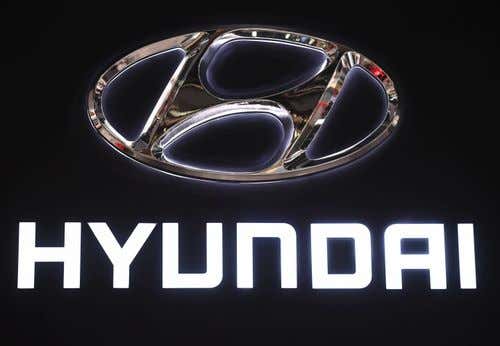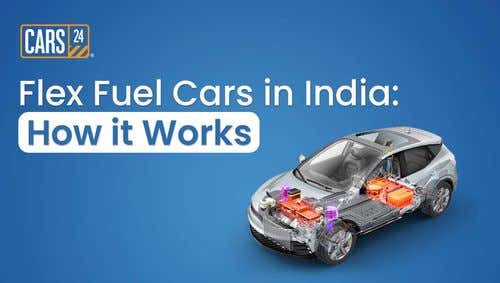How to Buy Good Used Cars: Tips for Used Car Buyers

Updated on: 18th August, 2023 IST

Are you tired of being taken for a ride by unreliable used car dealers? A few of us have definitely come across such dealers. But don't worry. Today, I come bearing the gift of information. Information that is going to be your ultimate guide on how to buy good used cars in India. Buckle up, because this is going to be one wild ride (pun intended).
First things first, let's talk about the elephant in the room: finding a good used car in India can be just as exhausting as searching for a pollution free zone in Delhi. But just because it's a challenge, doesn't mean it's impossible. With a little bit of know-how, some good research and a hint of caution, you can drive away with the deal of a lifetime.
So, without further ado, let's get into the subtle nuances of how to buy good used cars in India.
Table of Contents
How to Buy a Used Car?
India is a country of excitement, where the smallest occasion calls for the craziest celebrations. Buying a car is no different. But, when it comes to buying a used car in India, it's easy to get caught up in the excitement and make a hasty decision. Before you sign on the dotted line, it's important to remember that buying a used car can be a bit like navigating blindfolded through a maze. However, don't let that discourage you! Together, we're going to figure out the perfect way to buy a used car.
Here are a few things you need to keep in mind:
1. Budget
It's important to set a realistic budget and stick to it. Try not to get caught up in the excitement of a car that's out of your budget. A few thousand rupees might seem irrelevant at the spur of the moment, but it might lead to financial difficulties down the road. Once you've established your budget, it's time to brace yourself for the research.
2. Research
Just like everything else, online resources can help you conduct your research without breaking a sweat. This can give you a fair idea of what's available in your area and at what price point. Checking online reviews and videos can help you make the right decision.
3. Test Drive
Test driving a car is critical — whether it's a new or old one. This crucial step will give you a sense of how to handle the car and inform you of any issueswith it. It's also a good idea to bring a car connoisseur or trusted mechanic with you, as they'll be able to give you an in-depth analysis of the car's condition.
4. Negotiation
After the test drive, it's time to negotiate the price. Remember, the price listed is not always the final price, and there's often room for negotiation. It's also important to check the car's history, including any accidents or repairs, as it can affect the value of the car.
Choose the Car That Suits You Best
First, you have to consider your living situation and lifestyle. If you live in a metro city and regularly have to navigate through the crowded streets, then a sturdy and compact car may be the way forward. But, if you live on the outskirts of the city and frequently decompress by going for long drives, then a larger vehicle with more horsepower and a comfortable cabin might be your jam.
Next, you have to consider your budget. Just like new cars, used cars also come in all shapes, sizes, and price ranges. It's important to have a clear idea of how much you're willing to spend without jeopardising your finances in the months to come. Also, you must factor in certain ongoing expenses such as fuel, repairs, renovations, maintenance, and insurance.
Once you have zeroed in on a list of cars based on your lifestyle and budget, it's time to take some test drives and find the car that suits you best!
Tips and Tricks on How to Buy Good Used Cars
The used car market in India has grown steadily over the past decade, with more and more people seeing the financial benefits of buying a pre-owned car over a new one. A change in perception that used cars are not reliable has also helped, and the used car market is projected to be twice as big as the new car market by 2025. It’s good to keep a few things in mind when you buy used cars, so here’s a quick used car buying guide to help you understand exactly what to look out for.
1. What Type of Car Should You Buy?
Let’s start with the basics: what car suits your needs and lifestyle? For example, those living in areas with bad roads should opt for a vehicle with high ground clearance. On the other hand, people looking for a comfortable highway cruiser that can carry enough luggage can opt for an MPV or a sedan. Similarly, if you primarily drive in the city, perhaps a hatchback is the best bet for you.
Make a list of things that you would need from your used car and then, start looking for models that fall in your budget. You can use our car price calculator to figure out the right resale value of any vehicle.
2. Always Check Used Cars During the Day
Inspecting a used car under natural light is the best way to catch any imperfections such as scratches, minor dents, or paint imperfections. Used car showrooms sometimes display their car under bright lights that can mask exterior damage to the car, especially minor scratches.
A car that is two years old or less and has run less than 20,000 km is a good bet. However, based on your budget you can go for an older car, especially if it’s still in production and spares are easily available.
3. How Old is ‘old’?
It is also important to check the service records. This way, not only can you ensure the car was regularly serviced at authorised service centres, but ensure the odometer has not been tampered with.
4. Get the Car Checked by a Mechanic
Even if you’ve been using cars for years or have a good understanding of the mechanical components, it’s good to have any used car you might purchase inspected by a skilled mechanic. Not only will the mechanic have a good eye for even the smallest niggles, they will even give you an idea of how much any repair work will cost.
5. Check VIN and Obtain Service Records
Every car that is sold comes with a unique Vehicle Identification Number (VIN). This number can be used to identify the date of manufacture and the service records from the authorised service centres.
6. Check Insurance Records
You can easily gather data on all insurance claims made at the service centre. Through this, you can easily understand what all the vehicle has been through mishaps it has been involved in. Usually, car owners get repairs done at authorised dealerships through insurance.
7. Take a Long Test Drive, Multiple Times
Take the car you plan to buy on a long test drive. In fact, take it on multiple test drives. You can even ask your mechanic or a friend to drive the car and see how they feel about it.
8. Look for Rust Spots
It’s best to stay away from vehicles even with small rust spots. Rust reduces the structural rigidity of the vehicle, and can be hard to get rid of permanently. Apart from the body panels, make sure you check the car’s underbelly, running boards, and engine mounts for rust.
9. Dealer Tricks
If you are buying a car from a dealer, make sure that you keep in mind that some sales representatives will try to misguide you to put your hard-earned money on a lemon.
To save you from such crooked dealers, CARS24 offers a wide range of pre-owned vehicles and assists you with choosing the perfect used car.
What's the Difference Between MRL Certified Vs Non MRL Certified Used Cars?
When you think about a used car, think about a timely made investment. Both can be a great way to save money. At the same time, another important distinction to make when shopping for a used car is whether it's MRL certified or non-MRL certified. But what exactly does MRL mean?
MRL refers to the Mega Refurbishment Labs which conduct rigorous inspection processes to ensure they meet a high standard of quality and safety. This ensures that any underlying issues or defects of a car have been identified and repaired, and that the car has been thoroughly cleaned and detailed.
On the other hand, non-MRL certified used cars have not gone through the same, rigorous inspection process. This means that a lot of issues or defects that accompany an old car may not have been addressed.
So, if you're looking for a used car, I'd recommend that you only consider MRL certified cars. Not only are they of higher quality and ensure safety, but they also come equipped with a warranty. But, if you're on a tight budget and willing to take on a bit more risk, a non-MRL certified car may be a viable option.
What Documents to Check Before Buying a Used Car in India?
Proper documentation means less things to worry about once you've made a purchase. The same thing goes for a used car. Different states might have different requirements for the necessary documents to buy a used car. However, here are a few that you should check before buying a used car in India:
- Registration Certificate (RC)
- Invoice of Car Purchase
- Insurance Documents
- Service Records Book
- RTO Forms: 28,29 and 30 32, and 35
- No Objection Certificate(NOC) or Clearance Certificate
- Road Tax Receipt
- Certification for bi-fuel kits
- Emission Certificate
- Owner's Manual
How Does RC Transfer Work in India?
Registration Certificate (or RC) Transfer in India is the process of transferring the ownership of a vehicle from one person to another. Like any other documentation, there are several steps to this process. If you're planning to register for an RC Transfer, here are the steps you need to follow:
- First, the current owner of the vehicle should submit a transfer application to the Regional Transport Office (RTO) in their area.
- Then, the transfer application must be accompanied by the vehicle's original Registration Certificate (RC) and other documents such as the transferor's ID proof and the transferee's ID proof, insurance documents, and road tax payment receipt.
- After that, the RTO verifies the documents and checks for any pending fines or violations associated with the vehicle.
- If everything is in order, the RTO then issues a new RC in the name of the transferee and charges a nominal fee for the transfer service.
The RC Transfer process can also be done online, in which a person can apply for the transfer of registration certificate through the official website of the state transport department and pay the fee online.
One should remember that a "No Objection Certificate (NOC)" is mandatory if you're transferring a vehicle from one state to another within India. It's also important to note that the transfer of ownership must be done within 14 days of the sale of the vehicle to avoid any penalties.
Frequently Asked Questions
The decision to buy a used car depends on your individual needs and requirements. There are some benefits of buying a used car like a lower price, lower depreciation rates, and a wider variety of cars to choose from. It also comes with the risk of hidden mechanical issues or wear and tear. In other words, it is recommended that you get a thorough and professional inspection of the car before buying it.
Taking a test drive of a used car is crucial to evaluate its performance, condition, and to check whether you're comfortable driving a particular vehicle. It also helps you check the documents. You can schedule a test drive with the seller, bring your licence and insurance, check the car's condition and consider taking a mechanic with you for some last minute expert advice.
During a test drive, you should evaluate the car's performance and condition, including engine, transmission, brakes, suspension and steering. Also check the interior, electronic features, safety features, pollution certificate, and documents. A test drive can also help you notice any unusual noises or vibrations that might need immediate attention.
Recently Added Cars to Buy
Other Blogs
- Recent
- Featured
Popular Cities to Sell Car

